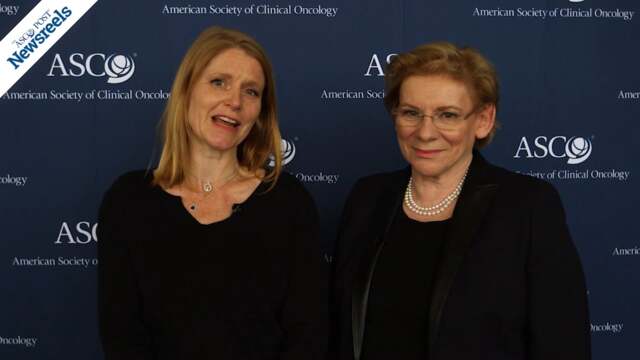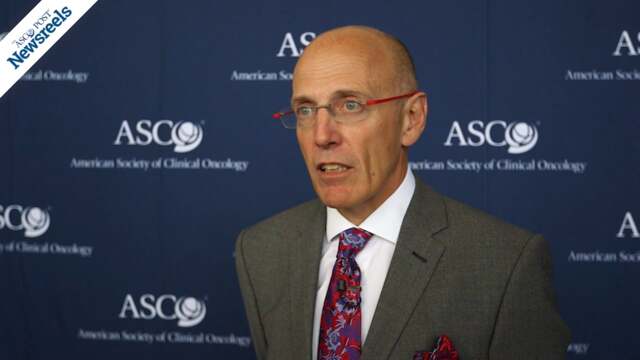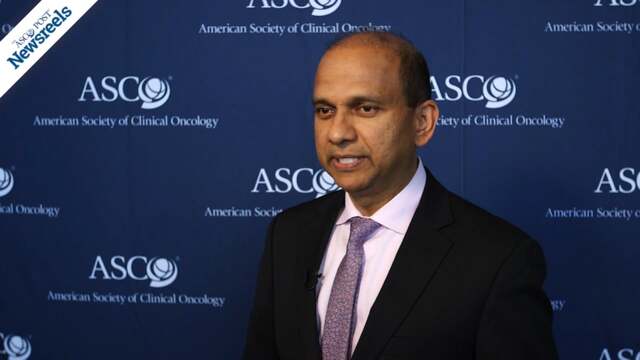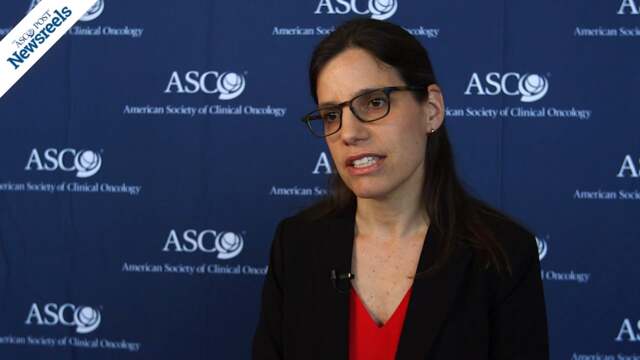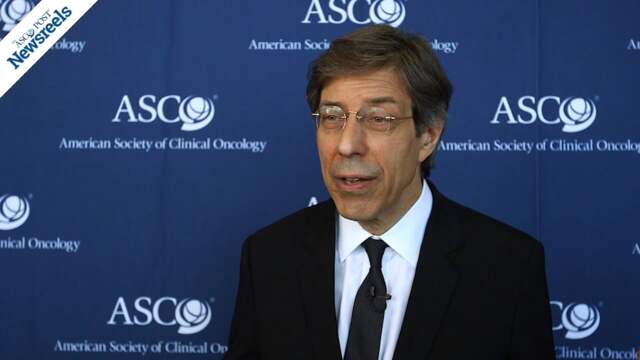David I. Quinn, MBBS, PhD, on Urothelial Cancer: Results from KEYNOTE-045
2017 ASCO Annual Meeting
David I. Quinn, MBBS, PhD, of the University of Southern California, gives his expert perspective on the planned survival analysis from a phase III open-label study of pembrolizumab vs paclitaxel, docetaxel, or vinflunine in recurrent, advanced urothelial cancer. (Abstract 4501)
Solange Peters, MD, PhD, of the University of Lausanne, who has been a driving force in ESMO’s efforts to promote women in oncology, talks with Mary Gospodarowicz, MD, of Princess Margaret Hospital, a recipient of the 2017 Women Who Conquer Cancer Mentorship Award.
Nicholas D. James, MBBS, PhD, of Queen Elizabeth Hospital, discusses study findings on adding abiraterone for men with high-risk prostate cancer starting long-term androgen-deprivation therapy (Abstract LBA5003).
Jame Abraham, MD, of the Cleveland Clinic, gives his views on findings on abemaciclib in combination with fulvestrant in patients with HR+/HER2- advanced breast cancer who progressed on endocrine therapy. (Abstract 1000)
Viviane Hess, MD, of the University of Basel and University Hospital Basel, discusses a Web-based stress management tool, called STREAM, designed to reduce stress and improve quality of life for newly diagnosed cancer patients, who often lack psychological support. (Abstract LBA10002)
Gary Rodin, MD, of the University of Toronto, discusses study findings on a systematic approach to alleviating distress and managing predictable challenges. (Abstract LBA10001)
